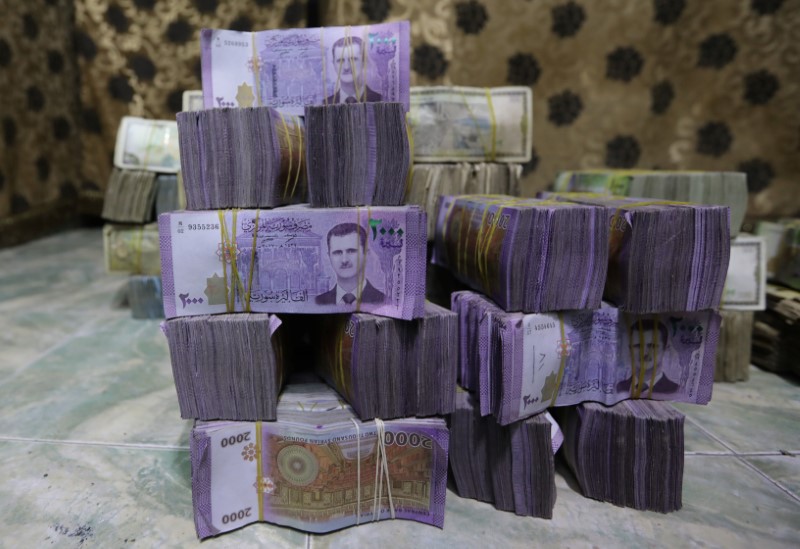AMMAN (Reuters) – The Syrian pound hit a record low on Thursday over fears of the impact of tougher U.S. sanctions this month and the repercussions of a seizure of assets of a leading tycoon on the war-battered economy, dealers, traders and businessmen said.
Traders said it cost as much as 2,050 Syrian pounds to buy one dollar on the street on Thursday. The pound closed slightly higher at 1,900 on Wednesday after rapid declines this week. It fluctuated around 1,500 pounds to the dollar just a week ago.
The pound had traded at 47 to the dollar before protests against President Bashar al-Assad’s authoritarian rule erupted in March 2011.
Dealers said panic selling of pounds was sparked by fears of how the new wave of U.S. sanctions might affect the economy. The Caesar Syria Civilian Protection Law, which takes effect this month, penalises foreign companies dealing with Syrian firms associated with Assad’s government.
Sentiment has also been hurt by Syria’s recent seizure of assets – including hotels, banks and mobile operator Syriatel – belonging to Assad’s cousin, Rami Makhlouf, one of the country’s richest men.
The pound’s fall has paralysed business activity, with many merchants and trading firms now reluctant to sell or buy in a market where the currency was declining by 5-10% daily, according to investors contacted by phone from Damascus.
The collapse of the currency has driven up inflation and aggravated hardship as Syrians struggle to afford food, power and other basics.
The pound’s decline has accelerated since mid-October when the financial crisis in neighboring Lebanon choked off a main source of foreign currency inflows.International sanctions against Syria, damage to the country’s industry from the fighting, and an exodus of money by panicked Syrians had pushed the currency sharply lower during the conflict, now in its ninth year.
(Reporting by Suleiman Al-Khalidi in Amman; Editing by Matthew Lewis)
















